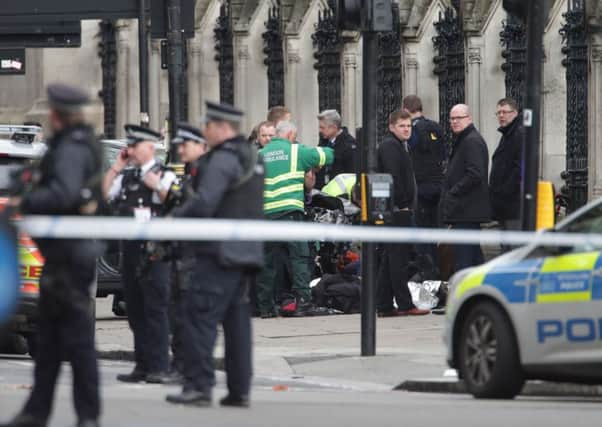Chris Marshall: The routine arming of police is not a decision to be rushed


Also on duty that day in 1994 and similarly unarmed was Bernard Higgins, now an assistant chief constable and one of the men charged with overseeing Police Scotland’s firearms officers.
Yesterday, Mr Higgins welcomed reporters to Police Scotland’s training college at Jackton near East Kilbride as his force put on a show of strength in response to last week’s terror attack in Westminster.
Advertisement
Hide AdAdvertisement
Hide AdAmong the victims in London was PC Keith Palmer, an unarmed officer who heroically put himself between attacker Khalid Masood and the Houses of Parliament.
While similarities between the deaths of Mr Palmer and PC Fulton are limited, neither incident caused Assistant Chief Constable Higgins to change his belief that Scotland’s police officers should be largely unarmed.
It is a view now open to a considerable degree of dissension among Mr Higgins’ own officers.
As senior officers yesterday moved to assuage concerns about the terror threat, many of those on the frontline had an altogether different message.
At its conference, the Scottish Police Federation warned officers are under-equipped to deal not just with terrorists but all manner of armed incidents.
The SPF’s anxiety is understandable: before security was stepped up following the Westminster attack, the only protection being offered to MSPs at Holyrood came from officers armed with nothing more deadly than a baton and incapacitant spray.
A review of security at the Scottish Parliament is under way, with two Taser-carrying officers deployed to Holyrood as an interim measure.
But it’s clear there are now many officers and members of the public who would support a fully armed police service.
Advertisement
Hide AdAdvertisement
Hide AdThere’s no indication Police Scotland is considering such a move and even if it was, the force would need the consent of parliament.
We should not ignore the views of those charged with keeping us safe, the rank and file officers who pull on their uniform each day not knowing what dangers they will face.
Last year, police officers from the United States visited the training college at Tulliallan in Fife to learn from their Scottish counterparts how to de-escalate threats without resorting to “deadly force”.
One American law enforcement official who took part said it led to an “epiphany” among his colleagues about how to respond to armed incidents.
While always being careful to have a level of armed officers commensurate with the threat, we should not retreat from a position which is the envy of others in more violent parts of the world.
Yesterday, Deputy Chief Constable Johnny Gwynne, an officer whose early career was spent in the Royal Ulster Constabulary during the Troubles, said terrorism would not be defeated with arms, but with the rather more prosaic tactic of community policing. He should know.
Our police force is rightly lauded for the relationships it has built with communities across Scotland.
A fully armed service would risk ending those relationships.